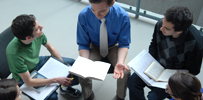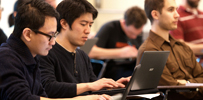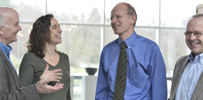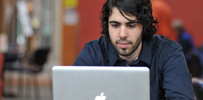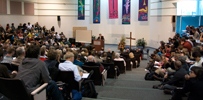Lecture Descriptions
Lecture #1: Christ and the Poetic Imagination
Discover how the poetic imagination, which “bodies forth the form of things unknown” can bring us closer to the mystery of Christ’s incarnation in which the word was made flesh. Drawing on poets from Shakespeare to Seamus Heaney, explore the ways poetry can give us a renewed and life-changing encounter with Christ in his beauty, truth, and goodness. Consider how poetry can help us to glimpse his continued presence with us in the church and in the world.
Lecture #2: Christ and the Moral Imagination
At the core of Christ’s teaching to “do unto others as you would have them do unto you” is an appeal to the moral imagination: we are to imagine ourselves into other people’s lives and circumstances, and see things from their perspective. Christ himself, in coming to dwell on earth as a human being, makes and models a pattern of self-emptying empathy. Drawing on poets from Langland to R.S. Thomas and on Dr. Guite’s own poetic response to the parables and paradoxes of the gospel, this lecture will show the centrality of the imagination to our moral life.
Lecture #3: Christ and the Prophetic Imagination
Christ is Alpha and Omega, and the proclamation of the Kingdom inaugurates a new age in Christ. Consider how the prophecies of Isaiah, Christ’s own parables of the Kingdom, and the imagery of the book of Revelation all evoke and require a full imaginative response, not simply a literal reading. As we respond with imaginations engaged, these texts may show us the joy that is set before us, and move our hearts and minds to live from and into that joy. Drawing particularly on the insights and poetry of William Blake, but also on the imagery and storytelling of C.S. Lewis and J.R.R. Tolkien, this lecture will show how the English poetic tradition can help us to respond more richly to the prophetic writings of Scripture and to those prophetic gifts which are still at work in our own communities.
